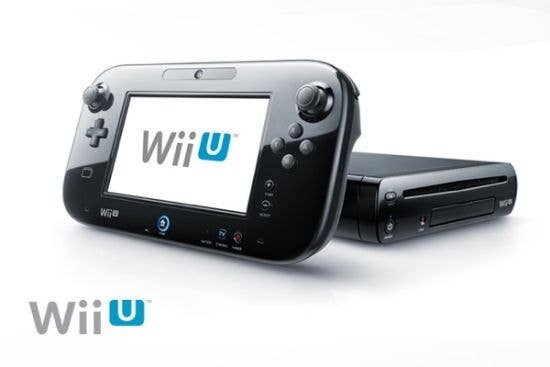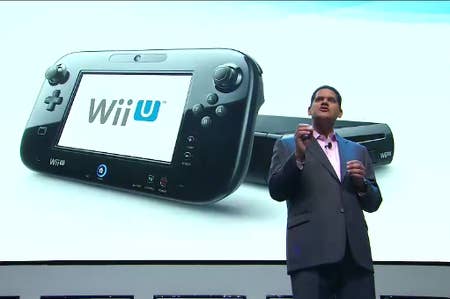Wii U: Dissecting Nintendo's Biggest Quotes
Veteran journalist Chris Morris examines some key statements from Nintendo's execs
There are good E3 performances and there are great E3 performances. In 2012, Nintendo had neither.
While it will be a few months before the public gets its say about the Wii U, few (including Nintendo) would argue that the company showed off the console in the best light possible at this year's industry trade show.
A bland Webcast (announced to the public at the last possible minute) got things off on the wrong foot. The absence of the company's global president at the E3 press conference sent mixed signals. And the decision to demonstrate third-party support by highlighting a year old game that was already widely played was … curious.
Rather than basking in a critical glow, as it did with the Wii, the company found itself on the defensive. The past week has seen a lot of interesting stories from senior company officials from a variety of outlets. We decided to look at what they had to say - and what some of the hidden meaning might be in those statements.
"My impression is that we should have done a better job because, in effect, we could not fully convey what Wii U is all about. So I am not 100 percent satisfied as far as this year's presentation." - Satoru Iwata on CNBC.com
Iwata has always been a candid corporate leader, which makes him an incredibly fresh interview. So it was nice to hear him admit what we all knew, instead of spinning things.
His disappointment in the press conference acknowledges that Nintendo has made things more difficult for itself. While it was always going to have to work on showing the general public the advantages of the Wii U GamePad (a name so fresh that even some company officials kept forgetting to use it), it lost the opportunity to get people on its side early.

E3 is full of opinion makers - and (for right or for wrong) a lot of those opinions are pushed out during and immediately after press conferences. While people who got extensive hands on time with select Wii U games found them enjoyable, the negative sentiment outweighed the positive, creating another hurdle the company will have to jump. And Nintendo knows this will be a hard one to clear.
"The Wii U could find itself on the outs sooner than Nintendo would like"
Chris Morris
"Frankly speaking, it was something in the past that we thought we might or might not go ahead with-this additional screen idea" - Satoru Iwata, also on CNBC.com
The fact that the expense of a Wii U tablet was of sufficient concern that the company considered scuttling it - for the first year-and-a-half of development - is noteworthy. Nintendo needs to price the Wii U correctly out of the gate. It can't afford a repeat of the 3DS stumble, which resulted in an immediate price cut. But the GamePad is obviously not a cheap piece of equipment.
Analysts - and pretty much everyone on the E3 show floor - agree that anything over $300 at retail would be catastrophic. Nintendo can likely make that happen. But a bigger question is "What will the standalone GamePad controllers cost?"
The company seems to be prepping people for those prices to be higher than usual.
"Games need to be built that can take advantage of the two GamePad controllers. It's going to be well after launch for those game experiences to come to life." - Reggie Fils-Aime on Gamasutra
The announcement of second GamePad controller support at Nintendo's press event seemed last minute. It was a toss away line that answered a question fans have been asking for over a year, but failed to discuss the answer in any detail.

There is, of course, no telling when the decision to support dual GamePads was made by the company, but it obviously hasn't been a focus since day one. Whether this is because the price of the controller is going to be at a level that few people will ultimately want two GamePads or because first- and third-party developers haven't had enough time to figure out how to incorporate more than one, it's still obvious this isn't a priority for the company.
"However fantastic the new television is to be launched, it's not as likely that people will immediately move to upgrade a television necessarily because of that longer cycle." - Satoru Iwata, speaking to analysts
The threat of Apple's long-rumored TV set hangs over the entire industry like a 500-lb. weight in a Road Runner cartoon. But since no one knows what that system really is, it's hard to prepare for it or defend against it when asked.
Nintendo has always pooh-poohed the Apple threat, even when it was obvious to most others that the iPhone and iPad were stealing away the casual gaming audience that made the Wii such a hit. But Iwata actually has a good point with this statement.
The price difference between TVs and consoles is substantial. And Apple has never been a company to launch with bargain pricing. Apple's TV set might become a real threat to Nintendo - and other console makers - but it will take a few years to reach that point, giving traditional console makers time to adapt and react.
"If [people] could hold a controller with two hands and hold a tablet or a smartphone with another hand, there would be no issue. Unfortunately, since it is not possible for humans to do that, you can't play a game in a way you can play with the Wii U." - Satoru Iwata, speaking to analysts about Microsoft's Project Glass
Though this was, in large part, a corporate defensive play, Nintendo knows that it's going to be easy to duplicate a lot of what it plans to do with the GamePad. Microsoft and Sony scoffed at the Wii controller for a long time, but finally realized the benefits of motion-controlled play - which gave birth to Kinect and PlayStation Move.
What Iwata failed to mention was that Microsoft - and Apple - could utilize Airplay to combine the controller and tablet. It's not ideal, but for select titles (and combined with Kinect), it could work.
Nintendo innovates - and Microsoft and Sony evolve that innovation. Sometimes that takes a while. But if that evolution happens too quickly in the next generation (and is done in a manner less obvious and clunky than the Sixaxis controller's motion control was), the Wii U could find itself on the outs sooner than Nintendo would like.

